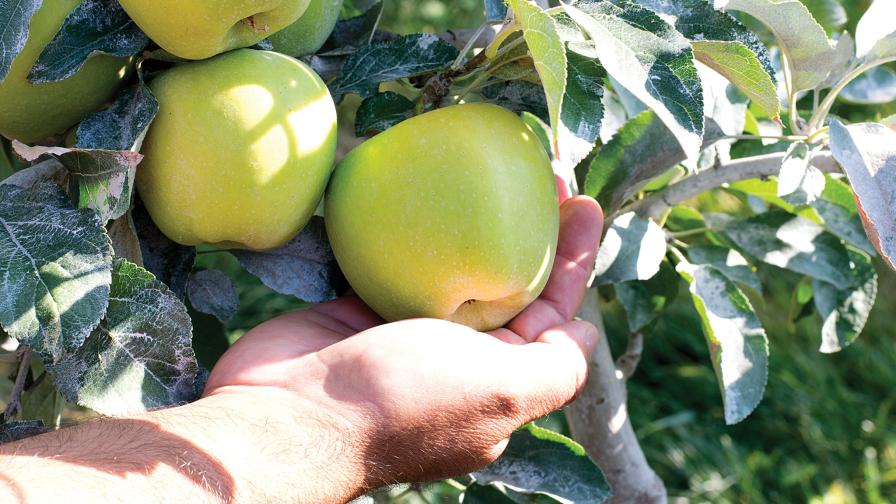Apple Industry Looks Ahead to 2013
Goodbye 2012 — with your challenges from Mother Nature and the long election cycle that culminated with the elections in November — and hello 2013. As the New Year arrives, all of us can look back on 2012 and contemplate what our industry can expect in the coming year. How will the results of the November elections affect apple operations? Will there be reliable labor for the next harvest? Will we have a new Farm Bill? Will Chinese apples soon be appearing in our supermarkets? What impact will the new food safety regulations have on the apple industry? What innovations will we see in the production and marketing of apples and apple products?
I am proud of what USApple accomplished in 2012, with our active presence on Capitol Hill, increased consumer outreach to promote apples and apple products, and funding and promotion of health research that further links apples to better living. But as we ring in the New Year, we have to ask — what does 2013 have in store for the U.S. apple industry?
The Farm Bill
As I write this, the lame duck session of Congress continues to focus on the budget/fiscal cliff and no progress has been made on the Farm Bill. It is expected that, at minimum, they will pass an extension of at least parts of the 2008 Farm Bill before the end of the year. An extension of the current law would mean that key programs without baseline funding, like the Specialty Crop Research Initiative (SCRI), could see cuts or even elimination. If a new bill isn’t passed, the pending budget sequestration will mean broader cuts, and priority programs including the Market Access Program would likely be impacted.
Last year, USApple worked hard to ensure the Senate version of the Farm Bill was extremely positive for apples and other specialty crops and included level or even increased funding for our priority programs. For example:
• Specialty Crop Research Initiative: The SCRI provides millions of dollars in new research funding to address the needs of specific crops and regions and which continue advancements in productivity and technology.
• Market Access Program (MAP) and the Technical Assistance for Specialty Crops (TASC): These programs provide critical trade assistance and market promotion tools to grow international markets for specialty crops.
• Specialty Crop Block Grants: With their focus on regional and local priorities for specialty crop producers, these can be used for improving food safety, investing in infrastructure, enhancing market opportunities, and supporting research aimed at specific industry needs.
• Plant Pest and Disease Programs: Investment in early discovery and eradication to combat invasive plant pests and diseases, which cost our economy millions of dollars per year and threaten the future of many fruit and vegetable commodities.
• USDA purchases of fruits and vegetables: Domestic nutrition assistance programs, such as the lunch and breakfast programs and the fruit and vegetable snack program, strengthen the commitment to improving nutrition and reducing childhood obesity by providing fruits and vegetables for use in schools.
USApple is urging Congress to pass a new, five-year Farm Bill. The likely alternative is a one-year extension of the current law, which will create new funding shortfalls.
Agricultural Labor
If the elections of 2012 told the political parties one thing, it is that both parties must court Hispanic voters. In many parts of the country, the Hispanic vote is what carried President Obama to victory. This increased attention could bode well for efforts to pass agricultural labor reforms. In his election victory speech, President Obama indicated immigration reform would be one of his priorities for his second term and described it as an issue that can only be solved by “working together.” Immigration reform remains divisive and unpopular with many “rank and file” members of both parties and there is a significant percentage of Americans who continue to believe that if agriculture “simply paid more,” the legal domestic workforce would appear. USApple will continue to stress that is not true.
USApple, along with the Agriculture Coalition for Immigration Reform (ACIR), the National Council of Agricultural Employers (NCAE), the American Farm Bureau Federation (AFBF), and others, will continue to make the strong case that mandatory E-Verify without meaningful guestworker reforms would spell disaster for agriculture. In addition to fighting E-Verify, we are also working to develop a consensus on a new agricultural labor proposal for the new Congress in early 2013. New legislation must address both the current workforce and make significant guestworker reforms.
Food Safety
We are anticipating the release of the FDA food safety standards to satisfy the Food Safety Modernization Act (FSMA). USApple worked with the FDA to provide information in the development of the regulations. Our Food Safety Task Force will continue to provide the industry with analysis and recommendations on food safety issues that affect the industry. We are prepared to consult with our Food Safety Task Force and coordinate closely with other leading produce organizations when the new regulations are released.
Over the coming weeks and months, USApple will meet with new Members of Congress, their staff, as well as representatives of the Obama Administration, to discuss our priorities including immigration and H-2A reform, the Farm Bill implementation, food safety, and export/trade issues. In the meantime, Happy New Year!









